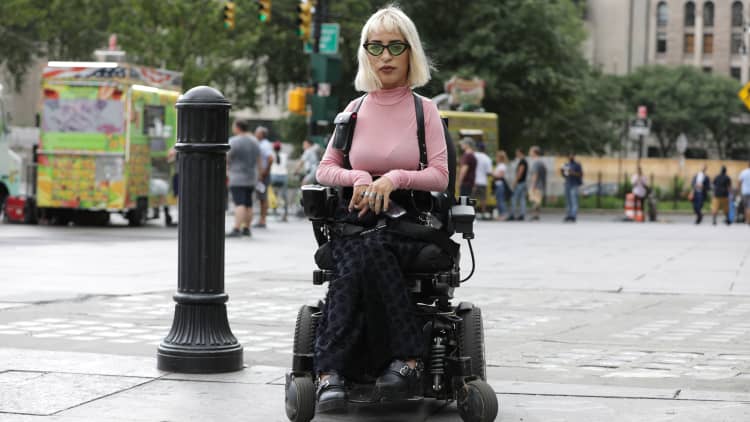June is LGBTQ pride month, which commemorates the Stonewall riots that took place in New York City on June 28th, 1969.
As part of its 2019 LGBTQ Workplace Survey, Glassdoor surveyed 6,104 U.S. adults about the treatment of LGBTQ employees at work, and found that while much may have changed for LGBTQ Americans in the 50 years since Stonewall, 53% of LGBTQ employees still say they have "experienced or witnessed anti-LGBTQ comments by co-workers."
Roughly 30% of their non-LGBTQ co-workers reported witnessing these kinds of events. What constitutes anti-LGBTQ comments can vary greatly from remarks like "that's so gay" to "I don't support same-sex marriage."
Additionally, 43% of LGBTQ employees report not being fully out at work, and nearly half, 47%, of all LGBTQ respondents believe that being out at work could hurt their career, including losing a job, not getting a promotion or not getting selected for a project.
"Still today, 26 states do not protect LGBTQ employees at work, and many of these employees believe coming out could hurt their career," Jesus Suarez, Glassdoor LGBTQ and Ally Employee Group Leader, said in a statement. "This is a wake-up call to employers and lawmakers. Many employers have an opportunity to build or strengthen the foundation for an inclusive culture that encourages employees to bring their full selves to work."
In May, the House of Representatives passed The Equality Act, a bill would expand the Civil Rights Act of 1964 to ban discrimination on the basis of sex, sexual orientation and gender identity, including in the workplace. When the bill was was first introduced in 2015, it gained public support from three companies: Apple, The Dow Chemical Company and Levi Strauss & Co. Today, the bill has the support of 161 corporate backers (including Glassdoor.)
Scott Dobroski, Senior Director of Corporate Communications at Glassdoor tells CNBC Make It that employers have a moral and business imperative to support protections for LGBTQ employees. "Smart employers today are ones that are promoting equality in the workforce, and there are two reasons they're doing it," he says. "One, it's the right thing to do. Two, they know that a diverse workforce is actually going to lead to greater productivity, creativity and innovation."
But the act is not expected to pass in the Senate, and without explicit legal protections, LGBTQ workers in many places are still forced to make difficult decisions about coming out at work.
A diverse workforce is actually going to lead to greater productivity, creativity and innovation.Scott DobroskiSenior Director of Corporate Communications, Glassdoor
"Should everyone come out at work? The answer still is, 'It depends,'" says Dobroski. "While we advocate and want everyone to bring their full selves to work and be comfortable, if someone feels it may not be safe in their workplace or they could face some discrimination, then it may not, unfortunately, be right at the current time for them to come out.
"However, we would also say then if that's the case, there are a lot of employers out there who do want you to bring their full selves to work, so the grass may be greener elsewhere."
Approximately 70% of LGBTQ employees surveyed by Glassdoor said that they would not apply to work at a company if it did not support its LGBTQ employees, and 46% of all workers (both LGBTQ and non-LGBTQ) said the same. That support can include offering LGBTQ benefits, creating employee network groups and donating to LGBTQ causes. Glassdoor found that companies that do not provide this type of employee support often end up creating environments where workers feel it is not okay to be out at work.
To make sure they don't miss out on qualified talent, Dobroski says employers should "embrace diversity and inclusion and promoting their policies and practices — and that doesn't mean just marching in a parade or changing, your social [media] icons to a rainbow for one month."
Like this story? Subscribe to CNBC Make It on YouTube!
Don't miss:



